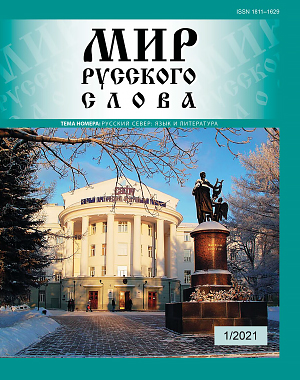Chat-Bot in the Methods of Teaching Russian as a Foreign Language
DOI:
https://doi.org/10.24412/1811-1629-2021-1-91-96Abstract
The article is devoted to using the capabilities of a chatbot, an artifi cial intelligence product that can complement traditional face-to-face training formats and educational materials. The article deals with the teaching of lexical units of foreign students studying Russian as a foreign language. MyRUSkey bot is a training bot in English and Russian, which daily off ers the user 1 of the top 100 most frequent words of the Russian language with comments, questions and tasks. The list of the most common 100 words was based on the frequency dictionary of the Russian language. A chatbot is a consistent learning tool. The purpose of creating a bot is to develop the interest of foreign users in the Russian language and familiarity with the most popular lexical units of the target language. The chatbot can be used starting from the zero stage of training. MyRUSkey bot allows you to master a short vocabulary level A1. It performs 4 main functions: educational, entertaining, motivational, reminding. The bot is built according to increasing diffi culty: the English language of explanations is gradually being replaced by Russian, the words that the student learned with the bot before are used in the future. The very technology of creating chat bots has ample opportunities for building diff erent types of courses.
Keywords:
e-leaning, microlearning, new in education, Russian as a foreign language, chat bot
Downloads
References
Ляшевская, Шаров 2009 — Ляшевская О. Н., Шаров С. А. Частотный словарь современного русского языка (на материалах Национального корпуса русского языка). М.: Азбуковник, 2009.
Литература
References
Downloads
Published
How to Cite
Issue
Section
License
Articles of "The World of Russian Word" are open access distributed under the terms of the License Agreement with Saint Petersburg State University, which permits to the authors unrestricted distribution and self-archiving free of charge.




